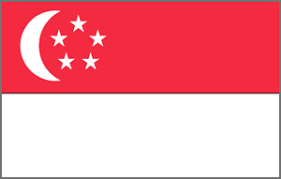Chemycal has been acquired by 3E
Learn MoreChemycal has been acquired by 3E
Learn MoreDiscover how Chemycal PRO helps you boosting your regulatory monitoring:

Singapore is a Party to the Montreal Protocol on Substances that Deplete the Ozone Layer. The main aim of the Montreal Protocol is to reduce and eliminate the production and consumption of Ozone Depleting Substances (ODS).1 At the 28th Meeting of the Parties (MOP-28) to the Montreal Protocol held in October 2016, an agreement known as the Kigali Amendment was adopted by all Parties, primarily to phase down the production and consumption of HFCs, which are non-ODS but greenhouse gases (GHG).
Commonly used as refrigerants in the Refrigeration and Air-conditioning (RAC) equipment, HFCs are key replacements to Hydrochlorofluorocarbons (HCFCs), a type of ODS that is being phased out under the Montreal Protocol. In view that there is an increasing consumption of HFCs arising from the phase-out of HCFCs mandated under the Montreal Protocol, the control of HFCs has therefore been listed under the ambit of the Protocol.
The Singapore National Environment Agency is therefor proposing to control 18 types of Hydrofluorocarbons (HFCs) under the Second Schedule of the Environmental Protection and Management Act (EPMA). Under the proposed control, companies importing or exporting the listed HFCs, whether in pure or mixture forms, are required to obtain a Hazardous Substances (HS) licence from NEA (Pollution Control Department). Licence holders are required to comply with the stipulated licensing conditions.
The 18 types of HFCs that will be listed in Second Schedule of EPMA include: tetrafluoroethane, norflurane, trifluoroethane, pentafluoropropane, pentafluorobutane, heptafluoropropane, hexafluoropropane, pentafluoropropane, decafluoropentane, difluoromethane, pentafluoroethane, trifluoroethane, fluoromethane, difluoroethane, trifluoromethane.
The Amendment will enter into force on 1 Jan 2019.
Link to the proposed control of Hydrofluorocarbons (HFCs) in Singapore
2013 © MyChemicalMonitoring. ALL Rights Reserved. About Us | Terms and Conditions